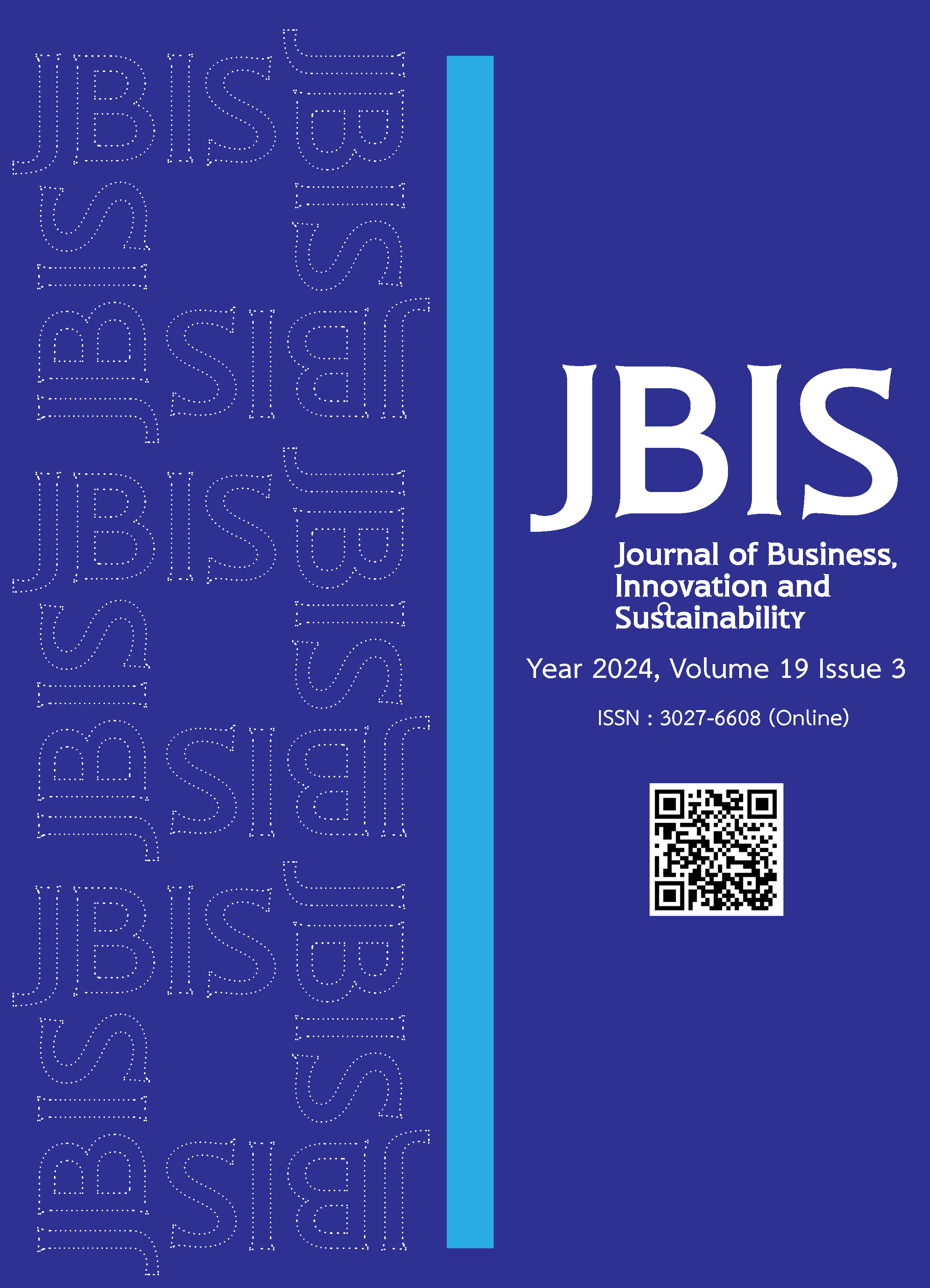Benefits, Challenges, and Key Success Factors of Community-based Tourism Management in Thailand: An Exploratory Study of 3 Destinations in Thailand
Main Article Content
บทคัดย่อ
This study aims to provide insight into the key factors that contribute to the success of community-based tourism initiatives in Thailand. In-depth interviews were conducted with community leaders in three tourist destinations in Thailand to gather their perspectives on the impacts of tourism on the communities. The results of the interviews revealed that community-based tourism has several benefits, including economic benefits, cultural preservation, environmental protection, social benefits, and educational benefits. This tourism faces two main challenges such as lack of infrastructure and conflict within community. The findings also showed that key success factors emcompassed community involvement, government support, and partnerships with private sector. The implications of these findings for the future development of community-based tourism are discussed.
Article Details

อนุญาตภายใต้เงื่อนไข Creative Commons Attribution-NonCommercial-NoDerivatives 4.0 International License.
เอกสารอ้างอิง
Boonratana, R. (2010). Community-based tourism in Thailand: The need and justification for an operational definition. Kasetsart Journal of Social Sciences, 31(2), 280-289.
Boyce, C. and Neale, P. (2006). Conducting in-depth interviews: A guide for designing and conducting in-depth interviews for evaluation input (Vol. 2). Watertown: Pathfinder International.
Chiabphimai, C., Feongkeaw, C. and Noklang, S. (2021). Management process of community-based tourism at Ban Nam Chiao community, Trat province. School of Administrative Studies Academic Journal, 4(2), 151-165.
Jitpakdee, P., Harun, A. and Zain, Z. B. M. (2016). Local community development through community-based tourism management: A case study of mae Kampong Village. Mediterranean Journal of Social Sciences, 7(3), 407-414.
Kallio, H., Pietilä, A. M., Johnson, M. and Kangasniemi, M. (2016). Systematic methodological review: Developing a framework for a qualitative semi-structured interview guide. Journal of advanced nursing, 72(12), 2954-2965.
Kampetch, P., Lukanathinakorn, N. and Hirunsathaporn, W. (2023). Quality assessment of community based tourism management: A case study Baanrimklong homestay community enterprise in Samut Songkhram province. Journal of Business, Innovation and Sustainability (JBIS), 18(4), 20-34.
Koment, J., Panyadee, C., Ekiem, B. and Techatunminasakul, S. (2015). Influence of community based tourism promotion policy on solidarity of tourism communities in Thailand: The theoretical perspective. Journal of International and Thai Tourism, 15(2), 88-105.
Kontogeorgopoulos, N., Churyen, A. and Duangsaeng, V. (2014). Success factors in community-based tourism in Thailand: The role of luck, external support, and local leadership. Tourism planning & development, 11(1), 106-124.
Lo, Y. C. and Janta, P. (2020). Resident’s perspective on developing community-based tourism–a qualitative study of Muen Ngoen Kong Community, Chiang Mai, Thailand. Frontiers in Psychology, 11, 1493.
Phromkham, T., Pampasi, R., Boonwanno, T. and Rattanaprathum, N. (2022). Tourism resource management of community-based tourism based on collaborative management concept in Phu Hin Rong Kla national park: A case study of Ban Rong Kla community,
Nakhon Thai District, Phitsanulok province. Sripatum Review of Humanities and Social Sciences, 22(2), 20-33.
Raepet, J. and Boonsayan, R. (2021). Public and community cooperation management of Mae Kampong village, Mae On district, Chiang Mai province. Journal of Roi Kaensarn Academi, 6(7), 1-13.
Saisamute, S., Pleerux, N., Karnchanasutham, S. and Nualchawee, K. (2016). Geoinformation technology for managing Community Based Tourism (CBT) in Chanthaburi and Trat provinces. Journal of Science and Technology Mahasarakham University, 35(1), 39-47.
Salazar, N. B. (2017). Community-based cultural tourism: Issues, threats and opportunities. Journal of Sustainable Tourism, 20(1), 9-22.
Sawatsuk, B., Darmawijaya, I. G., Ratchusanti, S. and Phaokrueng, A. (2018). Factors determining the sustainable success of community- based tourism: Evidence of good corporate governance of Mae Kam Pong Homestay, Thailand. International Journal of Business and Economic Affairs, 3(1), 13-20.
Sin, H. L. and Minca, C. (2014). Touring responsibility: The trouble with ‘going local’ in community-based tourism in Thailand. Geoforum, 51, 96-106.
Sommit, K. and Sitikarn, B. (2018). Success factors and sustainability of social enterprises in community-based tourism in Thailand. Suthiparithat Journal, 32(103), 81-94.
Swedberg, R. (2020). Exploratory research. In C. Elman, J. Gerring and J. Mahoney (Eds), The Production of Knowledge: Enhancing Progress in Social Science. Strategies for Social Inquiry (pp. 17-41). Cambridge: Cambridge University Press.
Tatiyanantakul, W. and Chindaprasert, K. (2024). Integrating lean management into community-based tourism: Enhancing efficiency in tourism supply chains through value stream mapping concept. Humanities, Arts and Social Sciences Studies, 24(2),277-291.


